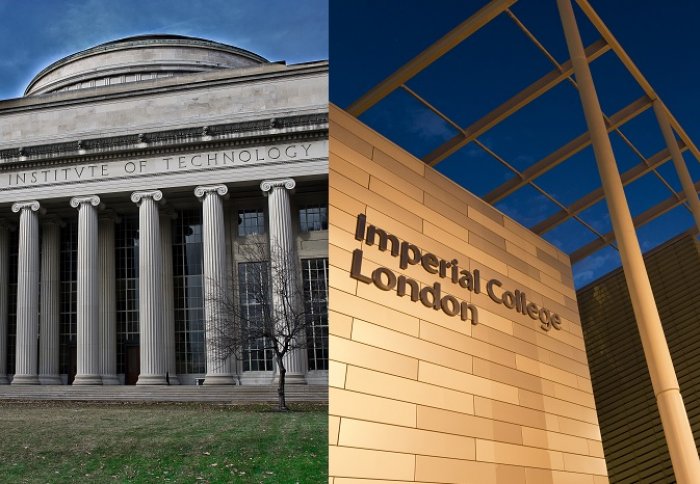

The first awards from the MIT-Imperial College London Seed Fund have been given to early-stage breakthrough projects spanning the two institutions.
The fund was set up to kick-start early-stage, risky and ‘blue skies’ research ideas that might not otherwise be pursued.
In its inaugural year, the MIT-Imperial College London Seed Fund selected three winning projects out of 30 applications. Each team was awarded £13,500 pounds by Imperial College London and an additional $16,000 by MIT for 18-month project periods.
Professor Maggie Dallman, Associate Provost (Academic Partnerships) at Imperial College London, said: “It is really exciting to see the first round of projects funded through this award, which supports risky fundamental research, driven jointly by two world leading Institutions.
"The sums to kick-start these projects may seem modest, but they can make a world of difference in getting our academics and students together and helping ideas to take off. I look forward to watching these projects evolve over the next 18 months.”
Building cell ‘factories’ to make new materials
 Pushing forward research in the field of synthetic biology will be the focus of research by Dr Tom Ellis (left), from Imperial’s Department of Bioengineering, and Professor Timothy Lu, from MIT’s Departments of Electrical Engineering and Computer Science.
Pushing forward research in the field of synthetic biology will be the focus of research by Dr Tom Ellis (left), from Imperial’s Department of Bioengineering, and Professor Timothy Lu, from MIT’s Departments of Electrical Engineering and Computer Science.
They are planning to re-program cells using re-engineered DNA to produce materials. These cells will perform like mini ‘factories’, manufacturing new multifunctional materials that are made from different proteins. These new materials could be used in anything from fashion textiles to new healthcare implants.
Making better batteries
 Improving the performance and safety of lithium batteries will be the focus of research by Imperial’s Professor John Kilner and Dr Ainara Aguadero (left), and Professor Bilge Yildiz from MIT. The team are aiming to develop solid state lithium-ion batteries (SLIBs).
Improving the performance and safety of lithium batteries will be the focus of research by Imperial’s Professor John Kilner and Dr Ainara Aguadero (left), and Professor Bilge Yildiz from MIT. The team are aiming to develop solid state lithium-ion batteries (SLIBs).
These offer the potential to store more energy, and may also be safer and have a longer life-cycle than conventional lithium batteries. The team will investigate the chemical and physical properties of these batteries at the atomic scale, in order to maximise their performance.
Developing computers that ‘think’ differently
 Professor Terence Rudolph (left), a theoretical physicist at Imperial and Professor Dirk Englund, an experimental physicist from MIT are working on problems in quantum computing. Quantum computers could solve problems that conventional computers cannot handle, because they ‘think’ differently to both humans and our current computers.
Professor Terence Rudolph (left), a theoretical physicist at Imperial and Professor Dirk Englund, an experimental physicist from MIT are working on problems in quantum computing. Quantum computers could solve problems that conventional computers cannot handle, because they ‘think’ differently to both humans and our current computers.
They rely on esoteric phenomena such as quantum entanglement, and still face many hurdles before working machines can be built. Professors Rudolph and Englund aim to develop and produce highly entangled states of photons, which will be the key ingredient for building a photonic quantum computer.
Article text (excluding photos or graphics) available under an Attribution-NonCommercial-ShareAlike Creative Commons license.
Photos and graphics subject to third party copyright used with permission or © Imperial College London.
Reporters
Colin Smith
Communications and Public Affairs

Contact details
Email: press.office@imperial.ac.uk
Show all stories by this author
Hayley Dunning
Communications Division

Contact details
Tel: +44 (0)20 7594 2412
Email: h.dunning@imperial.ac.uk
Show all stories by this author



Leave a comment
Your comment may be published, displaying your name as you provide it, unless you request otherwise. Your contact details will never be published.